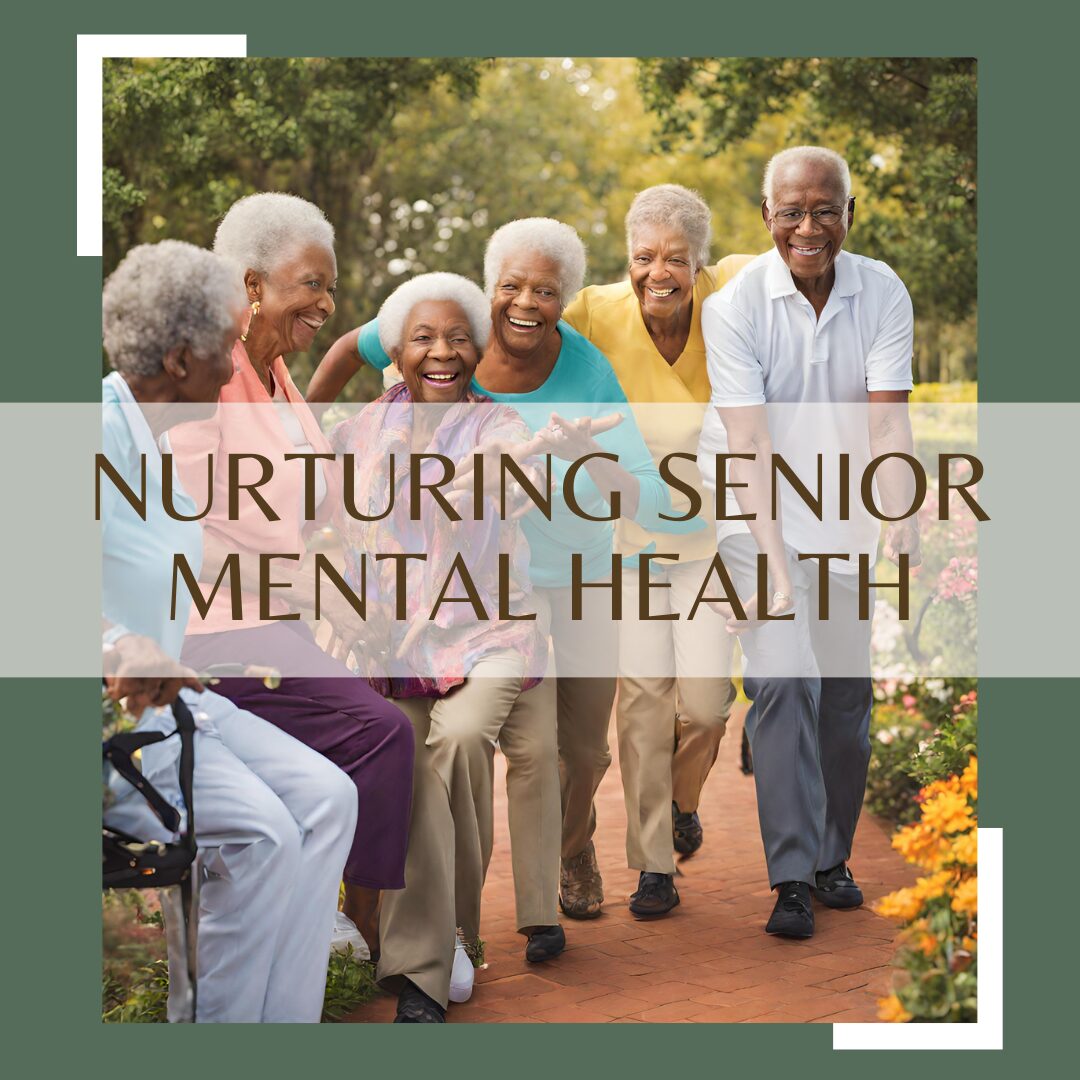Discover the secrets to senior happiness through nurturing mental wellness. It’s time to enhance mental well-being and find joy in every aspect of life.
Staying Active: Path to Vibrant Living
Discover vital foods and essential nutrition for optimal senior health.
Energizing Seniors: A Nutritional Guide for a Vibrant Life
Energizing Seniors: A Nutritional Guide for a Vibrant Life Introduction: Welcome back to another exciting chapter of “Community Chronicles: A Journey for All.” In this episode, we’re on a quest to uncover the secrets of living life to the fullest, even as the years roll on. Picture this: a life filled with boundless energy, laughter, and the sheer joy of feeling fantastic every day. How is that possible, you ask? Well, it all starts with what’s on your plate! Yes, you got it right: we’re diving deep into the world of senior nutrition, and we’re doing it with a big, bold smile. Why Nutrition Is the Name of the Game: Nutrition is like the magical fuel that powers your body. Think of it as the recipe to unlock the mysteries of vibrant living. It’s your golden ticket to feeling fantastic at every age. And for our beloved seniors, it’s an absolute game-changer. Why does nutrition matter so much? Let’s break it down! You see, what you eat directly impacts how your body functions. It’s like putting premium fuel in your car to ensure it runs smoothly and efficiently. Good nutrition does the same for your body. When you fuel up with the right stuff, you boost your energy levels, keep your immune system in tip-top shape, and maintain a robust and healthy body. First Off: Balanced Meals – The Foundation: Now, let’s dig into the nuts and bolts of senior nutrition. It all begins with balanced meals. And by “balanced,” we mean a plate like a rainbow, bursting with all sorts of colorful, nutritious goodies. Aim for a mix of fruits, vegetables, lean proteins, whole grains, and dairy products. The more variety, the merrier! Moreover, Stay Hydrated – The Elixir of Life: Water, water, water! It’s the elixir of life, especially for our seniors. You know what they say – eight glasses daily keeps the doctor away. Staying hydrated is critical, as it helps your body function smoothly, aids digestion, and keeps your skin glowing. Hydration is the secret to feeling on top of the world. On the Flip Side: Fiber’s Fabulous Benefits: Fiber, my dear friends, is like your body’s broomstick. It sweeps away all the waste and leaves you feeling light and energized. So, remember to include fiber-rich foods in your daily menu. Think whole grains, legumes, and an abundance of vegetables. Your gut will thank you. For Example, Protein Power – Fuel for Your Muscles: Protein isn’t just for bodybuilders; it’s for anyone looking to maintain muscle strength and overall vitality. As you age, your muscles naturally lose mass. To combat this, load protein from sources like lean meats, fish, and plant-based options. It’s like giving your muscles a little extra love. The Road to Vibrant Senior Living: So there you have it, folks! A sneak peek into the world of senior nutrition, where vibrant living is the ultimate goal. With balanced meals, proper hydration, fiber-rich foods, and protein-packed delights, you’re on your way to a life filled with energy and joy. Remember, nutrition isn’t just about what you eat; it’s about how you live. Join us next week for more wisdom and insights on your journey to a happier, healthier, and more vibrant life. In this episode of “Community Chronicles: A Journey for All,” we’ve unveiled the secrets to living a life filled with boundless energy and vibrant living. Nutrition is the magical fuel that powers your body, and we’ve explored how it can make all the difference, especially for our beloved seniors. It’s time to embrace a life that’s not just healthy but genuinely vibrant. So, grab your fork, and let’s dive into senior nutrition with a big, bold smile! “Community Chronicles” is your go-to destination for wisdom, insights, and practical tips on your journey to a happier, healthier, and more vibrant life. Stay tuned for more adventures, and remember, the journey is for all. More About GCF #RAISE-ing the members of our community by nurturing, empowering and sustaining to independence Activity Calendar Stay informed about upcoming events and activities Activity Calendar Plan ahead, so you won’t miss out Gallery Check out pictures from the organization’s past events Gallery Showcasing the highlights of previous events Community Impact Statements Understanding the impact of the programs & services provided to the community Community Impact Statements Read some of the opinions provided by members of a community about our programs & services For Newsletter Subscribe Us Sign up to receive Community News, a quarterly news and resources newsletter, as well as, receive alerts for upcoming events and programs Subscribe You have been successfully Subscribed! Ops! Something went wrong, please try again.
Nutrition Tips for Seniors: Eating Well, Living Well
As we age, our nutritional needs evolve, and making informed choices about what we eat becomes crucial for maintaining health and vitality in our senior years. Welcome to Week 2 of the Genesis Community Foundation’s series on health and wellness for seniors. In this blog post, we’ll explore essential nutrition tips tailored to the needs of older adults. These tips will help you make the best dietary choices to support your well-being and thrive in your golden years. The Importance of Senior Nutrition:Healthy eating is a cornerstone of healthy aging. Proper nutrition plays a vital role in managing and preventing age-related health conditions, such as heart disease, osteoporosis, and diabetes. It also supports cognitive function and helps you maintain a robust immune system. To help you make informed choices, we’ve compiled a list of essential nutrition tips for seniors. 1. Prioritize a Balanced Diet:Transitioning to a balanced diet is one of the most critical steps in senior nutrition. Aim for a variety of foods from all food groups: fruits, vegetables, lean proteins, whole grains, and dairy or dairy alternatives. A well-balanced diet ensures that you get a wide range of nutrients. 2. Hydration is Key:As we age, our sense of thirst diminishes, making it essential to consciously drink enough water. Proper hydration supports overall health and helps prevent issues like urinary tract infections and constipation. Try to drink at least 8-10 glasses of water daily. 3. Choose Nutrient-Dense Foods:Opt for nutrient-dense foods, which provide a high level of essential nutrients with relatively few calories. Examples include leafy greens, berries, and lean proteins like fish and poultry. These foods offer the vitamins and minerals your body needs without excess calories. 4. Get Sufficient Fiber:Fiber is essential for digestive health and can help prevent constipation and other digestive issues common in seniors. Whole grains, fruits, and vegetables are excellent sources of dietary fiber. 5. Limit Salt and Sugar:Excess salt can contribute to high blood pressure, while too much sugar can lead to weight gain and other health problems. Be mindful of your salt and sugar intake and look for low-sodium and sugar-free options. 6. Calcium and Vitamin D for Bone Health:Seniors are at an increased risk of osteoporosis and fractures. Ensure you get enough calcium and vitamin D to maintain strong bones. Dairy products, fortified foods, and supplements can help. 7. Protein for Muscle Health:Protein is vital for maintaining muscle mass, which can decline with age. Include sources of lean protein like chicken, fish, beans, and nuts in your diet. 8. Consider Omega-3 Fatty Acids:Omega-3 fatty acids, found in fatty fish, walnuts, and flaxseeds, can support heart health and cognitive function. 9. Smaller, More Frequent Meals:Some seniors may find it easier to manage their appetite and digestion by eating smaller, more frequent meals throughout the day. This can help prevent overeating and support balanced blood sugar levels. 10. Mindful Eating:Slow down and savor your meals. Pay attention to your body’s hunger and fullness cues. Mindful eating can help prevent overeating and promote healthier digestion. 11. Seek Professional Guidance:If you have specific dietary concerns or health conditions, consider consulting with a registered dietitian or nutritionist who can provide personalized guidance tailored to your needs. Proper nutrition is a vital component of healthy aging, and these tips are designed to help you make informed choices about what you eat. By prioritizing a balanced diet, staying hydrated, and focusing on nutrient-dense foods, you can support your health and well-being as you enjoy your golden years. Remember, it’s never too late to start making positive changes to your diet. Stay tuned for next week’s blog post, where we’ll dive into the benefits of physical activity for seniors. Your health matters, and we’re here to support you on your journey towards a healthier, happier life.
Breaking the Stigma: Why Seniors Should Embrace Asking for Help – Copy
Projects As we age, many of us become hesitant to ask for help. We may feel like we should be able to handle things on our own, or we may worry that asking for help will make us appear weak or dependent. But the truth is, asking for help is a normal and healthy part of life at any age, and seniors especially should embrace it. Here’s why: It’s a sign of strength, not weakness. Asking for help takes courage. It’s not easy to admit that we can’t do something on our own, especially if we’ve been self-reliant for most of our lives. But when we ask for help, we’re showing that we’re strong enough to recognize our limitations and seek support. It takes strength to be vulnerable and ask for assistance, and doing so can actually boost our confidence and self-esteem. It can improve our physical and mental health. As we age, our bodies and minds may not be as resilient as they once were. We may need assistance with everyday tasks like cleaning, cooking, or running errands. Asking for help with these activities can reduce our stress levels, increase our mobility, and prevent falls and injuries. It can also provide us with valuable social interaction, which is crucial for our mental health and wellbeing. It can deepen our relationships. When we ask for help, we’re showing that we trust and value the people in our lives. This can strengthen our relationships with loved ones and create new connections with others in our community. It can also help us feel more connected to the world around us, which is important for our emotional health and sense of purpose. It can open doors to new experiences and opportunities. When we ask for help, we’re often exposed to new ideas and perspectives. We may learn new skills or discover new hobbies, which can enrich our lives in unexpected ways. Asking for help can also lead us to new opportunities for volunteer work, community involvement, or travel, which can keep us engaged and active well into our senior years. It can enhance our quality of life. Ultimately, asking for help can improve our overall quality of life. It can reduce our stress levels, increase our sense of independence and autonomy, and help us maintain our physical and mental health. It can also create opportunities for personal growth, meaningful connections with others, and a sense of purpose and fulfillment. In conclusion, seniors should embrace asking for help as a normal and healthy part of life. By doing so, we can improve our physical and mental health, deepen our relationships, open doors to new experiences and opportunities, and enhance our overall quality of life. So don’t be afraid to ask for help – it’s a sign of strength, not weakness.
Healthy Eating for Seniors: Nourishing Your Body and Mind
Healthy Eating for Seniors: Nourishing Your Body and Mind As we age, our nutritional needs change. Eating a healthy diet becomes even more important as we try to maintain our physical and mental health. Here are some tips for seniors on how to nourish your body and mind through healthy eating: Focus on nutrient-dense foods As we age, our bodies may not absorb nutrients as efficiently as they once did. That’s why it’s important to focus on foods that are nutrient-dense, meaning they provide a lot of nutrients per calorie. Examples include fruits, vegetables, whole grains, lean protein, and healthy fats like nuts and seeds. Drink plenty of water Dehydration can be a serious problem for seniors, especially if you have health conditions that affect your kidneys or bladder. Be sure to drink plenty of water throughout the day to stay hydrated. You can also drink herbal tea, low-sugar juices, or other hydrating beverages to mix things up. Pay attention to portion sizes As we age, our metabolism slows down, which means we may not need as many calories as we once did. Be mindful of portion sizes, and try to eat until you’re satisfied rather than stuffed. Eating smaller, more frequent meals throughout the day can also help you maintain energy levels and avoid overeating. Limit processed and sugary foods Processed and sugary foods can be high in calories and low in nutrients, which can contribute to weight gain and other health problems. Limit your intake of these foods, and instead focus on whole, natural foods as much as possible. Consider any dietary restrictions or health conditions If you have health conditions like diabetes, high blood pressure, or heart disease, it’s important to work with your healthcare provider to develop a healthy eating plan that meets your specific needs. You may need to limit certain foods or nutrients, or you may need to eat more of certain foods to manage your condition. Make mealtime social and enjoyable Eating can be a social and enjoyable activity, and it’s important to maintain those connections as we age. Consider inviting friends or family members over for a meal, or joining a local seniors’ group or community center for meals and social activities. Eating a healthy diet is crucial for seniors who want to maintain their physical and mental health. Focus on nutrient-dense foods, drink plenty of water, pay attention to portion sizes, limit processed and sugary foods, consider any dietary restrictions or health conditions, and make mealtime social and enjoyable. By doing so, you can nourish your body and mind and enjoy a healthier, happier life.
Breaking the Stigma: Why Seniors Should Embrace Asking for Help
As we age, many of us become hesitant to ask for help. We may feel like we should be able to handle things on our own, or we may worry that asking for help will make us appear weak or dependent. But the truth is, asking for help is a normal and healthy part of life at any age, and seniors especially should embrace it. Here’s why: It’s a sign of strength, not weakness. Asking for help takes courage. It’s not easy to admit that we can’t do something on our own, especially if we’ve been self-reliant for most of our lives. But when we ask for help, we’re showing that we’re strong enough to recognize our limitations and seek support. It takes strength to be vulnerable and ask for assistance, and doing so can actually boost our confidence and self-esteem. It can improve our physical and mental health. As we age, our bodies and minds may not be as resilient as they once were. We may need assistance with everyday tasks like cleaning, cooking, or running errands. Asking for help with these activities can reduce our stress levels, increase our mobility, and prevent falls and injuries. It can also provide us with valuable social interaction, which is crucial for our mental health and wellbeing. It can deepen our relationships. When we ask for help, we’re showing that we trust and value the people in our lives. This can strengthen our relationships with loved ones and create new connections with others in our community. It can also help us feel more connected to the world around us, which is important for our emotional health and sense of purpose. It can open doors to new experiences and opportunities. When we ask for help, we’re often exposed to new ideas and perspectives. We may learn new skills or discover new hobbies, which can enrich our lives in unexpected ways. Asking for help can also lead us to new opportunities for volunteer work, community involvement, or travel, which can keep us engaged and active well into our senior years. It can enhance our quality of life. Ultimately, asking for help can improve our overall quality of life. It can reduce our stress levels, increase our sense of independence and autonomy, and help us maintain our physical and mental health. It can also create opportunities for personal growth, meaningful connections with others, and a sense of purpose and fulfillment. In conclusion, seniors should embrace asking for help as a normal and healthy part of life. By doing so, we can improve our physical and mental health, deepen our relationships, open doors to new experiences and opportunities, and enhance our overall quality of life. So don’t be afraid to ask for help – it’s a sign of strength, not weakness. More About GCF #RAISE-ing the members of our community by nurturing, empowering and sustaining to independence Activity Calendar Stay informed about upcoming events and activities Activity Calendar Plan ahead, so you won’t miss out Gallery Check out pictures from the organization’s past events Gallery Showcasing the highlights of previous events Community Impact Statements Understanding the impact of the programs & services provided to the community Community Impact Statements Read some of the opinions provided by members of a community about our programs & services For Newsletter Subscribe Us Sign up to receive Community News, a quarterly news and resources newsletter, as well as, receive alerts for upcoming events and programs Subscribe You have been successfully Subscribed! Ops! Something went wrong, please try again.



